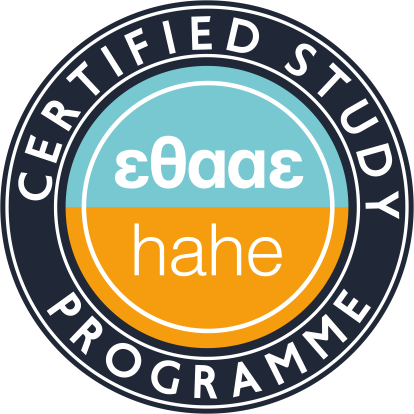Digital Games: Design and development
Course Code (in greek): ΘΠ0250
ECTS Units: 5
Semester: 6
Professor: Karasavvidis Ilias
Aim. The course aims to introduce students to the theory and practice of educational game design and development. The course covers both the concepts and the skills required for the design and development of serious educational games. As a result of their engagement in the process of designing and developing an educational game prototype, the participants are expected to master the requisite concepts and skills.
Learning Outcomes. Upon completion, the students will have mastered the following:
- analyze how digital games might support learning
- outline the relation between game mechanics and learning mechanics
- describe the significance of intrinsic integration of academic content into digital games
- craft a story which will wrap academic content into the game narrative
- develop game assets for telling this story
- program the game logic
Outline. The course addresses issues related to both the theory and the practice of game design and development. In terms of theory, the course examines games support learning, reviews the empirical research on game-based learning, and focuses on the intrinsic integration of academic content into the game. In terms of practice, the course focuses on familiarizing students both with the requisite concepts, software tools, and workflows for (a) game asset creation (modeling, texturing, animating, lighting, effects), and (b) game logic programming (visual programming using logic bricks).
Instructional Approach. The course combines various teaching methods and resources such as: (a) lectures, (b) discussions, (c) lab sessions, and (d) video-tutorials.
Assessment. The course involves 3 main group deliverables: (a) the game design document (DD), (b) a playable game prototype, and (c) interim short-assignments. The final assessment involves an oral exam in which the student teams present and discuss their game designs and prototypes.


